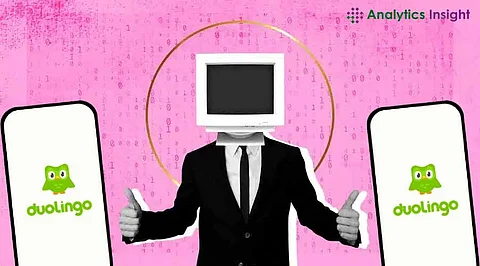

AI language apps like Duolingo Max, Babbel, and Mondly are reshaping how we learn languages in 2025.
In 2025, AI-powered language learning apps are transforming the way users can learn a new language. Duolingo still tops the list, but some other cutting-edge apps are also using AI to offer even more personalized and engaging learning opportunities.
Let’s take a look at some of the best AI language tutors to explore in 2025.
Best for: Gamified learning, AI enhancements
Duolingo Max takes the original Duolingo a step further by including AI-powered features such as ‘Explain My Answer’ and ‘Roleplay.’ These features enable students to converse in real-time and learn about the language's usage. Duolingo Max retains the fun, gamified experience of Duolingo while offering more in-depth lessons suitable for all types of users.
Key features:
AI-based feedback
Real-time roleplay for practicing conversations
Personalized learning paths
Best for: Practical application, conversational fluency
Babbel has incorporated AI to develop its structured learning method. Babbel’s speech recognition technology helps learners improve their pronunciation, and its customized study plans adapt to each learner's progress. Babbel is best suited for learners who want to develop practical language skills and engage in real-life conversations.
Key features:
AI-based speech recognition for improved pronunciation
Real-life conversation situations
Adaptive learning plans
Best for: Comprehensive language learning, live interaction
The AI instructor from Busuu utilizes personalized study schedules and provides immediate corrections for grammar and pronunciation. What distinguishes the platform is the incorporation of comments from native speakers, allowing learners to receive authentic corrections. Busuu offers the option of receiving assistance from live tutors for additional help with learning.
Key features:
AI-powered personalized study plans
Native speaker comments for authenticity
Access to live tutors for customized classes
Best for: Immersive learning, context-based approaches
Building on its Dynamic Immersion methodology, Rosetta Stone’s AI coach encourages students to think and react in their target language immediately. The platform’s TruAccent voice recognition teaches learners to improve their pronunciation, creating an immersive and contextual experience best suited for anyone who wants to master language skills in real-life situations.
Main features:
TruAccent speech recognition for accurate pronunciation
Immersion through context
AI-based personalized coaching
Best for: Visual and media-based learners
Lingopie stands out because it incorporates movies, TV series, and other media into its classes. With dual subtitles and AI-based interactive flashcards, it makes an entertainment and educational resource. This means that, in general, Lingopie is a great fit for visual learners who enjoy learning through real-world materials, which also helps them to develop patience for vocabulary.
Key features:
The ability to use dual subtitles on media content significantly enhances the understanding of the content through multiple perspectives
It is treated as an interactive vocabulary-building tool
The content library is enormous, ranging from TV series to films
Ideal for: Flexible, neurodiversity-friendly learning.
AI-Generated and custom-fit study strategies for each student, meeting individuals’ needs. It is neurodiversity-friendly, to provide for all learning styles: auditory, visual, and more. Most of all, Promova offers live tutoring so that learning becomes a better experience with professional language tutors.
Key features:
AI-powered study plans tailored to students
Neurodiversity-friendly learning resources
One-on-one learning sessions via live tutoring
Best for: Language practice based on AR/VR immersion
Mondly provides a unique virtual and augmented reality language practice experience with its AI partner, LUNA. Enabling learners to hone their speaking skills by providing real-life scenarios through augmented and virtual reality technology encourages fluency and interaction.
Key features:
AI partner LUNA for the conversation practice
AR/VR-based immersion for language practice
Real-time speech feedback
Best For: Conversational practice in spoken language with the use of AI avatars
Praktika.ai uses avatars to simulate real-life conversations with AI. The avatars interact with students in various contexts, enabling them to practice their speech and gain confidence in conversation. Praktika.ai targets conversational fluency, making it an ideal solution for individuals seeking to improve their speech.
Key features:
AI avatars for conversational practice
Scenario-based learning for real-world application
Focus on spoken language proficiency
The language-learning revolution through AI is in full motion, providing students with customized, interactive, and immersive means to learn a new language. Apps such as Duolingo Max, Babbel AI, and Busuu AI Tutor introduce cutting-edge AI features that learn alongside users and enhance their language-learning experience.
If a user is a fan of gamification, everyday conversations, or immersive technology, there is an AI-based app that can assist them in achieving all their language objectives in 2025.
